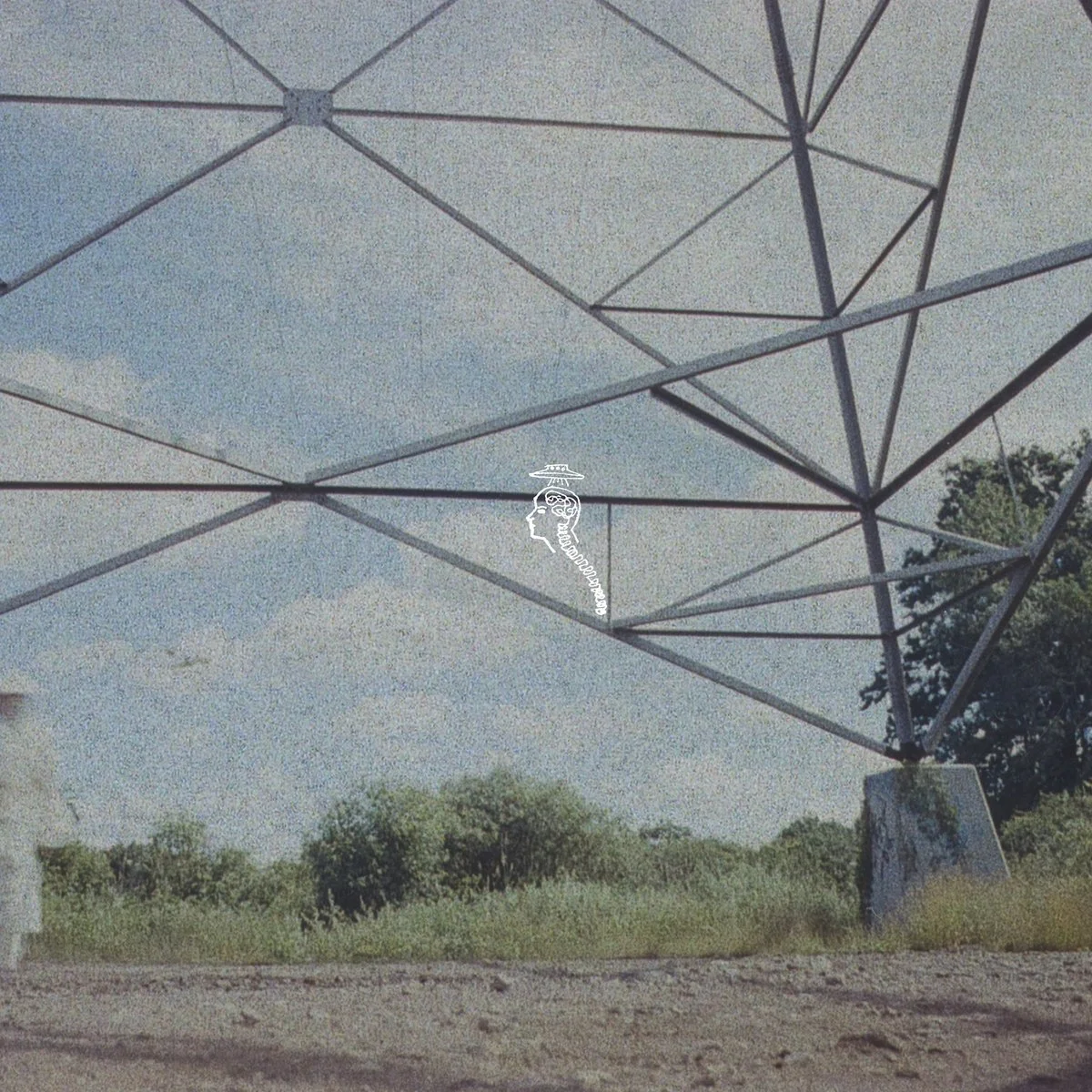by John Brouk
The Los Angeles-based Monde UFO follow-up to their justifiably revered 7171 album, once again appearing out of the blue with another captivating assemblage of psychedelic avant-garde jazz compositions and exercises on Flamingo Tower. In 1977, the Voyager space probe was sent into outer space with a golden record compilation of speeches, sounds, songs, and other culturally significant recordings. The music of Monde UFO could easily be the mystic interstellar answer to that record from another galaxy or dimension.
With plenty of guitar squawks and sax squeaks, haunting organ tones, lackadaisically uttered whispered-sung vocals, hoards of eerie and industrial sounding noises and effects, and consummate jazz drumming tying all the variety of sounds and songs together, Flamingo Tower is a fantastic collection of otherworldly music. Listening to the album feels like being in on a wonderful secret, like picking up the frequency of a late-night radio program hosted from an unknown location, beaming down obscure free jazz and the deepest of garage psych deep cuts, interspersed with conspiracy theory conversations.
After the mechanical sounding rhythm and partly-spoken mantras of “Gambled House We’re Wiping Fire,” we are presented with a more traditional song structure and melodic tendencies on “Sunset Entertainment 3.” Energetic drumming drives the track over beds of sustained 1960s psych organs, erratic guitar outbursts, and a catchy, nearly singalong chorus. There are several such catchy moments amid the chaotic instrumentation of the record like on “Devil Food Cake.”
Masterful drumming is found throughout the record, like on “Samba 9,” which also has an acoustic guitar strumming under ascending horns, what sounds like a full choral section and strings, along with more frantic guitar freakouts. “Old Town Pollution” is a clinic of precision drum fills that never miss a beat while electric piano assists the vocal melody and a saxophone has an epiphanic exclamation.
The album is not afraid to tread in less conventional sonic territory, like the full-on free jazz of “Ave Tascam,” with its nonlinear lingering synth chords, hammer-like percussion, and unhinged saxophone that is segmented by recorded speech and a ghostly aria. “Solitaire” has a snaking horn part that meanders in duet with a vocal refrain while rhythm is given by what sounds like a tote full of various percussion instruments being tossed to-and-fro.
Energy levels fluxuate in a way that lifts and lowers the listener like they are awash in an auditory tide. At times this means a tranquil, trancelike state. At others, it involves racing through a cosmic void of spluttering brass and locked in drumming, like on “119.” The tracklist’s eccentric mix of instrumentation and bossa nova creates a challenging, easy listening feel.
The album culminates in an organ motif that is repeated throughout the record and provides a final chance for subdued vocal delivery over acoustic guitar and a haunted organ with some auditory quirks. “Psalm 3” is a solemn-sounding closer to a beautifully chaotic record. It’s an album that, while still playable in the background, has even deeper meaning when listened to attentively.

